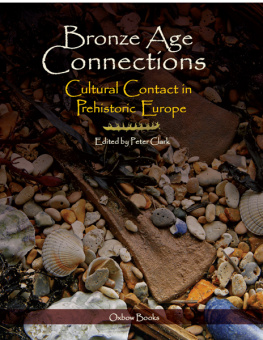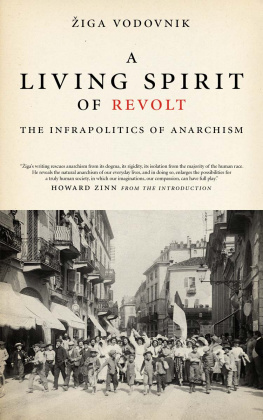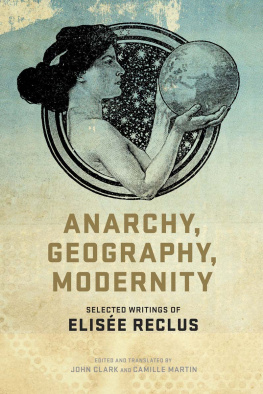LIVING WITHOUT DOMINATION
Living Without Domination defends the bold claim that humans can organise themselves to live peacefully and prosperously together in an anarchist utopia. Clark refutes errors about what anarchism is, about utopianism, and about human sociability and its history. He then develops an analysis of natural human social activity which places anarchy in the real landscape of sociability, along with more familiar possibilities including states and slavery.
ASHGATE NEW CRITICAL THINKING IN PHILOSOPHY
The Ashgate New Critical Thinking in Philosophy series brings high quality research monograph publishing into focus for authors, the international library market, and student, academic and research readers. Headed by an international editorial advisory board of acclaimed scholars from across the philosophical spectrum, this monograph series presents cutting-edge research from established as well as exciting new authors in the field. Spanning the breadth of philosophy and related disciplinary and interdisciplinary perspectives Ashgate New Critical Thinking in Philosophy takes contemporary philosophical research into new directions and debate.
Series Editorial Board:
David Cooper, University of Durham, UK
Peter Lipton, University of Cambridge, UK
Sean Sayers, University of Kent at Canterbury, UK
Simon Critchley, New School, USA and University of Essex, UK
Simon Glendinning, University of Reading, UK
Paul Helm, Kings College, University of London, UK
David Lamb, University of Birmingham, UK
John Post, Vanderbilt University, Nashville, USA
Alan Goldman, University of Miami, Florida, USA
Joseph Friggieri, University of Malta, Malta
Graham Priest, University of Melbourne, Australia and
University of St Andrews, UK
Moira Gatens, University of Sydney, Australia
Alan Musgrave, University of Otago, New Zealand
Living Without Domination
The Possibility of an Anarchist Utopia
SAMUEL CLARK
ASHGATE
Samuel Clark 2007
All rights reserved. No part of this publication may be reproduced, stored in a retrieval system or transmitted in any form or by any means, electronic, mechanical, photocopying, recording or otherwise without the prior permission of the publisher.
Samuel Clark has asserted his right under the Copyright, Designs and Patents Act, 1988, to be identified as the author of this work.
Published by
Ashgate Publishing Limited
Gower House
Croft Road
Aldershot
Hampshire GU11 3HR
England
Ashgate Publishing Company
Suite 420
101 Cherry Street
Burlington, VT 05401-4405
USA
Ashgate website: http://www.ashgate.com
British Library Cataloguing in Publication Data
Clark, Samuel
Living without domination : the possibility of an anarchist
utopia. - (Ashgate new critical thinking in philosophy)
1. Anarchism 2. Utopias
I. Title
321'.07
Library of Congress Cataloging-in-Publication Data
Clark, Samuel, 1974
Living without domination : the possibility of an anarchist utopia / Samuel Clark.
p. cm. -- (Ashgate new critical thinking in philosophy)
Includes bibliographical references and index.
ISBN 0-7546-5461-3
1. Anarchism. 2. Utopias. I. Title. II. Series
HX833.C563 2007
335'.83--dc22
2006008833
ISBN: 978-0-7546-5461-2
ISBN: 0-7546-5461-3
ISBN: 978-1-4094-8519-3 (ebk-ePUB)
Printed and bound by Antony Rowe Limited, Chippenham, Wiltshire.
Contents
Preface
This book has its roots in a doctoral thesis written from 2000 to 2003, in the Politics Department at the University of York. During my time at York and since, Ive had help from friends, fellow-students, teachers, colleagues and family. Thankfully, these arent mutually exclusive categories.
Friends outside the academy, including especially Eric Howard, Vix Lowthion, David Martin and Nick Spicer, friends and fellow-students inside it, including Alex Bavister-Gould, Derek Edyvane, Sarah Marshall, Matt Sleat and Rob Wavre, and my sisters Alex and Verity Clark, gave of their company, conversation and various expertises.
Teachers including Matt Matravers, Sue Mendus and Jon Parkin disagreed with me, pushed for clarity, and helped create a rigorous but friendly working culture. Peter Nicholson, who was my supervisor until his retirement, made doing a PhD psychologically possible for me. Alex Callinicos, who then took over, was thoughtful, supportive, and a pleasure to work with.
My parents Gillian and Stephen Clark gave generous personal, professional and financial support, despite their occasional misgivings about my joining the family firm.
Finally, my wife Emily supported us both, put up with my lows and absences, and gave of her good sense, determination and love. This would have been impossible without her; so would everything else.
Sam Clark, York and Glasgow, 2006
Introduction
This book is an exercise in practical utopianism. I shall show, by an analysis and some examples of human sociability, that an anarchist utopia is within the bounds of social possibility. We really could live together peacefully and prosperously without domination.
Twentieth-century anarchist texts frequently open by noting that anarchism has long been thought dead, but that now is the time when it is (again) vital and relevant. Few other movements have been buried so often or so impermanently, and these corrections and recoveries are therefore needed. However, they are incomplete. The importance of anarchism does not lie wholly in its relation to current circumstances, however propitious or demanding. It lies also at the level of theory, in anarchisms comprehensive challenge to domination and assertion of radical social possibility.
Several kinds of work are needed to take advantage of these virtues. We must reread central texts and, in connection with this, we must clear away accumulated misrepresentations. Most importantly here, we must extend, correct and supplement the discovered anarchist theory: that is, we must continue to do anarchist philosophy in the tradition of William Godwin, Peter Kropotkin and many others.
Denials of the utopian claim with which I began have often been grounded in mistakes about what anarchists want, about utopianism, and about human sociability. I reach my conclusion partly by considering and refuting them, beginning with some common mistakes about the nature of anarchism.
Anarchism: Marginalisation and Variety
This book is both anarchist and about historical anarchism. But it is not immediately obvious what anarchism in general is, and it may be too marginal or too flawed to be worth such consideration. As James Joll remarks, Anyone who has tried to write about anarchism sometimes comes to a point at which he wonders just what it is he is writing about elsewhere, Joll feels the need to justify writing about the subject by appeal to the thought that if the aim of the historian, like that of the artist,
There are five common but mistaken reasons for marginalising anarchism. The first two are culturally sanctioned images of anarchists which distort our perception. There is an image immortalised and satirised by Joseph Conrad in The Secret Agent. Conrads Professor expresses his pathological hatred for everything with calculated violence. He carries a bomb so as never to be taken alive by the police; he hands out explosive to anyone who asks, for whatever purpose; he devotes his life to a search for the perfect detonator. Violence, including symbolic violence for ideological ends, is neither typical of, nor exclusive to anarchists. The image of the wild-eyed, bearded anarchist with the Molotov cocktail persists, but it is not an accurate picture of most anarchists, nor of the claims and results of anarchist theory.











